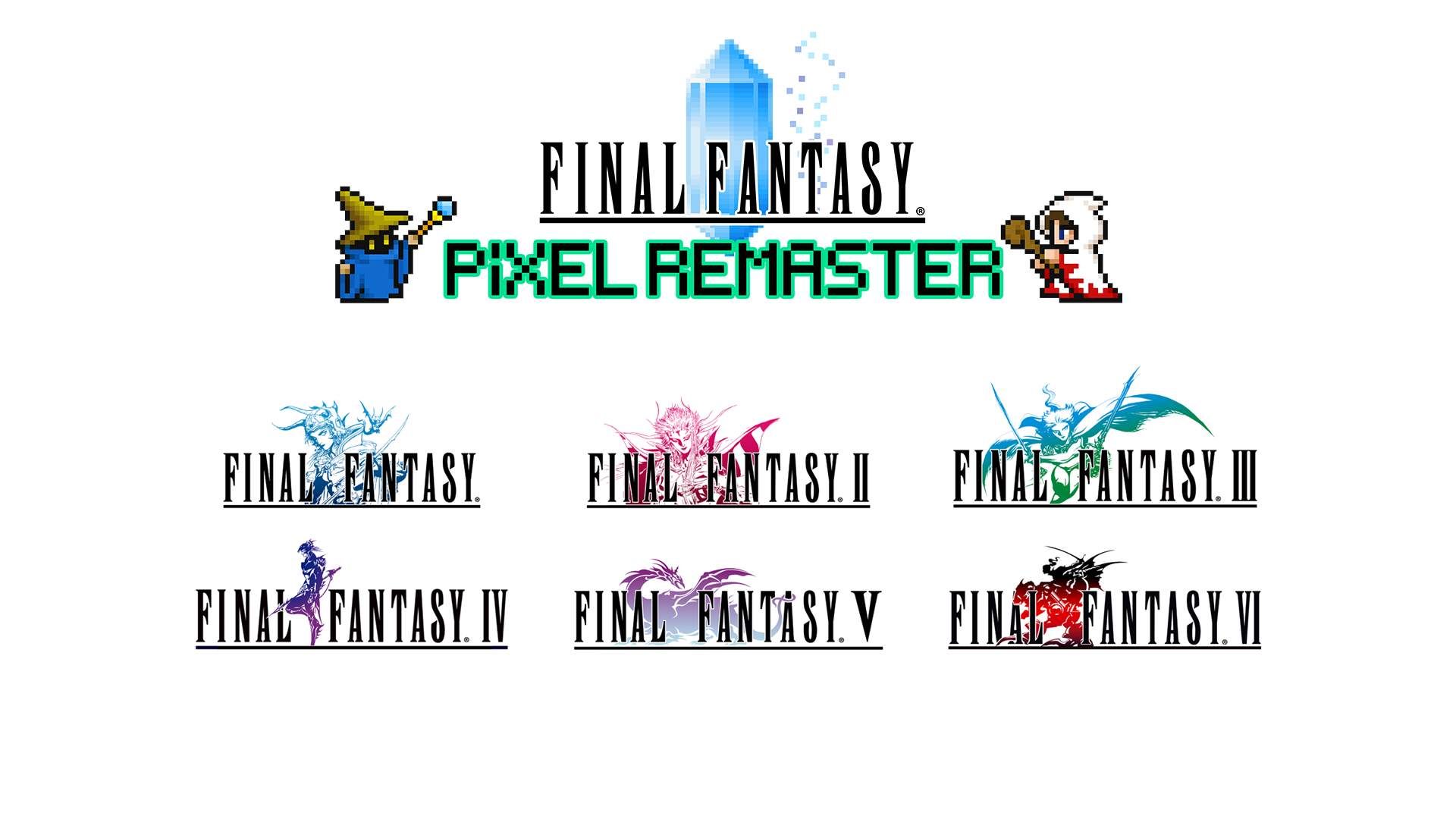Final Fantasy Pixel Remaster
Developer: Square Enix
Publisher: Square Enix
Platforms: PlayStation 4 (Reviewed), Switch, Windows
Release Date: 19 April 2023
Price: $74.99 USD / $107.95 AUD Available Here
Overview
The first six main Final Fantasy games were re-released many times since their inception on the 8 and 16-bit Nintendo consoles. Initially released for PC and mobile, the Final Fantasy Pixel Remaster series is an effort by publisher Square-Enix to provide versions of these titles that preserve their pixel-retro aesthetic.
Story
Final Fantasy I, II, and III are pretty light on lore. These titles use the same basic premise: As the warriors of light, players must restore the four crystals to defeat evil. That said, some character development can already be seen in FF II and FF III. Final Fantasy IV was released pretty early in the life span of the Super Nintendo. The hardware upgrade foresaw a huge step-up in presentation and content for the series. FF IV delivered a much more fleshed-out story. Things such as cutscenes, more involved character interactions and a melodramatic storyline were introduced. Final Fantasy V kind of followed that same trend, but it failed to push the storytelling forward compared to FF IV. The story-telling and overall character development were the highlights in FF VI. It was with Final Fantasy VI that the series first got its grandiose sense of scale. It had – for its time – a dense and intricate storyline. Its main characters were constantly evolving along the main plot, and they also had exclusive and optional events that fleshed them out even further. For the first time, the characters felt sort of alive, even if they were primarily stereotypes. It was pretty satisfying to wonder where the narrative might lead the characters next, especially at the beginning when their paths branch out. Cutscenes and events such as the famous opera skit and the multi-layered final boss battle made RPG fans back then dream about what would come next.

Gameplay
These titles are the foundations for their more popular 3D entries. Many of the things that would become synonymous with Final Fantasy, such as airships, Chocobos and Moogles were first introduced in these games. The first three games, like many RPGs of their time, were mostly simple objective-based dungeon crawlers that featured lots of battles and resource management. They may be simple, but not overtly so. The sense of progression in these games is purely gameplay-based, meaning that for each dungeon completed, another challenge instantly arises, and these aren’t limited to simply completing dungeons. For example, certain types of terrain can only be traversed with the employment of some sort of vehicle, or an NPC might hold some item that is required for your party to evolve their initial jobs. This dynamic of constant challenge and reward is fun. The games are mostly well paced, and they don’t require the player to constantly grind for levels and resources, although difficult spikes in certain places will present players with veritable challenges sometimes.
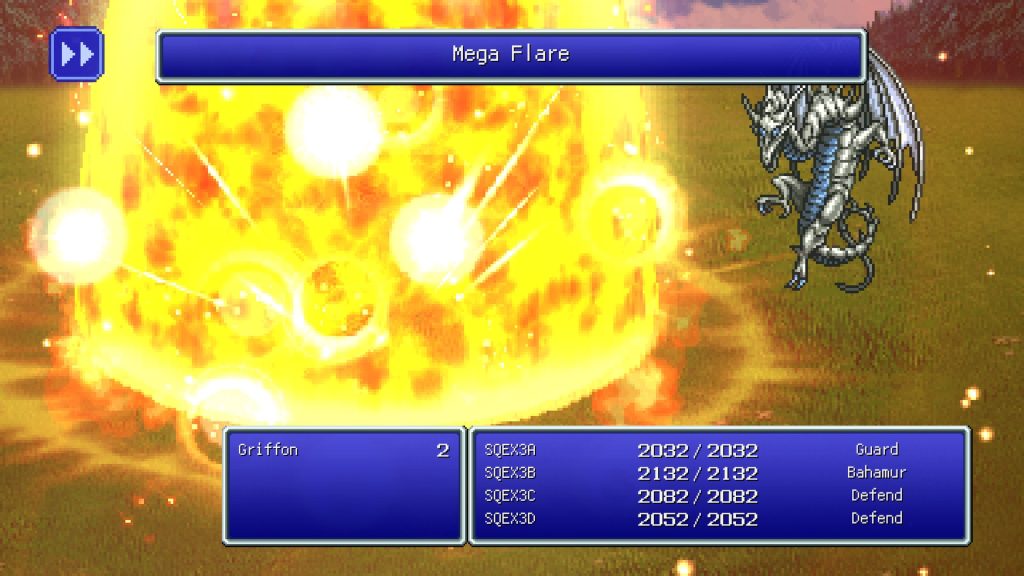
The subsequent games play largely like their predecessors, but they are much more story-heavy in comparison. They introduce many cutscenes and dialogues. The story-telling and overall character development were the highlights in FF VI to the point it overshadows the gameplay. At the same time, side quests and optional bosses were gradually implemented in the series, and their number also increased a lot in Final Fantasy VI.
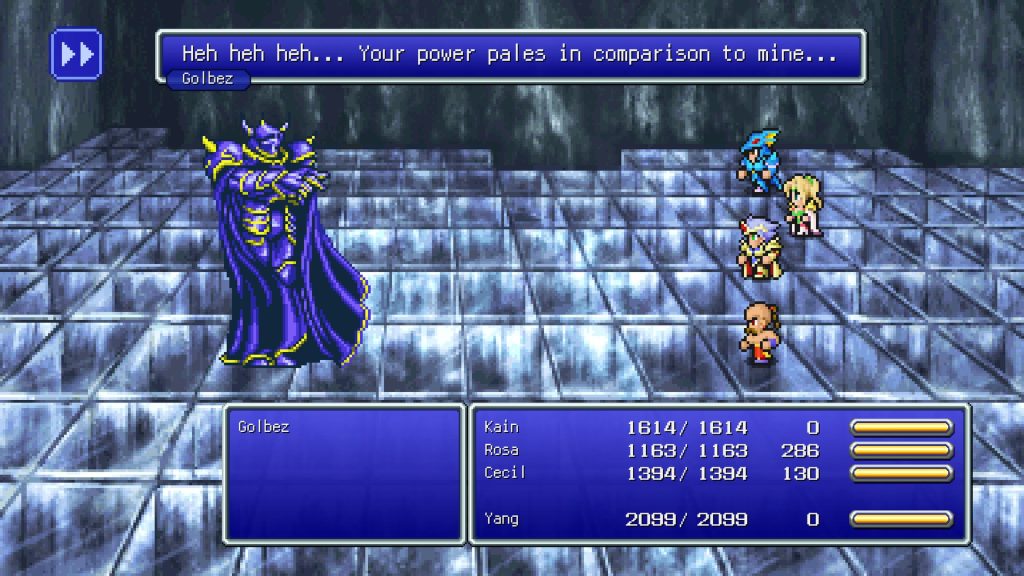
The Pixel Remaster series implements various gameplay balance changes and bug fixes that these games received throughout their many re-releases. It also implements its own changes to make these titles as approachable as ever. For starters, there’s an auto-battle feature that repeats the commands that the player has entered previously. The auto-battle function also increases the speed of battles dramatically. Even players who can’t stand the slowness of turn-based RPGs may find that these games are now much more dynamic and fun overall. It’s also possible to turn off random encounters altogether at any time. To add to that, players can now run without equipping any additional items in all six games. Diagonal movement is also possible across the board. Inside the configuration menu, you can find the boost menu, where it’s possible to multiply or even reduce the experience and money gained. If you’re more of a purist, you can simply leave everything as is and enjoy these games closer to what the original versions were. As they say, having options is always a good thing.
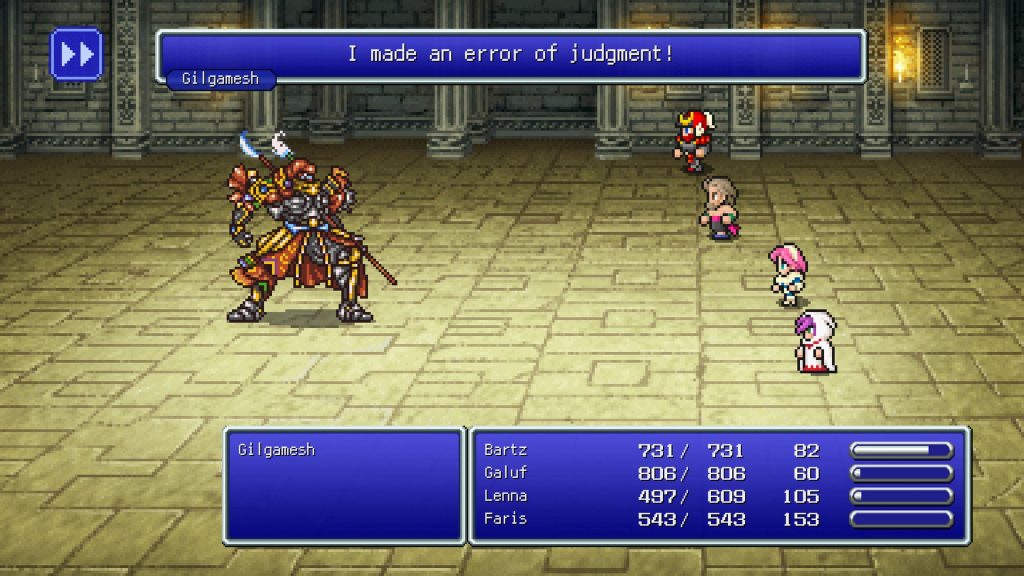
Visuals
While many might be disappointed to see these games re-released using the same visual aesthetics for the umpteenth time, I have to say that the new pixel work and added effects and animations make these games a delight to look at. The Pixel Remaster versions use a brighter palette that makes the colors pop out. The older 8-bit games were brought up to a similar standard as seen in FF IV and V. The new shading on the water surface looks pretty good, as do the new environmental effects. The opera event in FF VI was remade using Square Enix’s HD-2D engine. It was a disappointment that all the games were not remade this way.
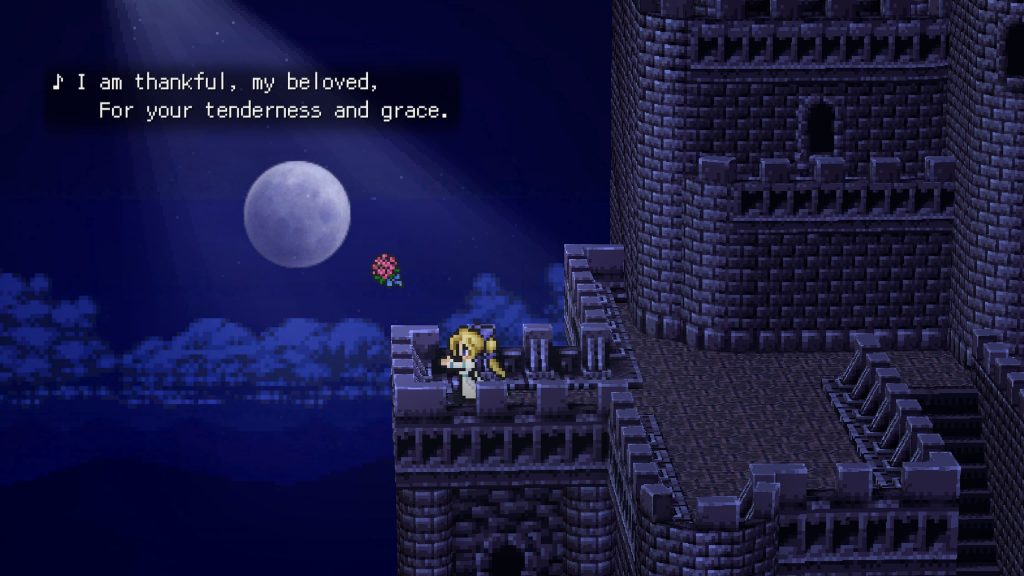
Audio
Besides the new remade soundtrack for each game, all effects are basically the same as the original versions. Some of the new arranged tunes are gorgeous, while others sound pretty close to their original counterparts. Some of these compositions that had a very short loop were extended, but not all of them received the same treatment, which is rather odd. The opera song from FF VI is now sung using real vocals that were recorded in many different languages. Overall, I’m pretty satisfied with how the soundtrack turned out.
Overall
It took some time, but we finally have a way to enjoy classic Final Fantasy games on modern consoles. It’s high time for these games – and other overlooked Square Enix gems, such as Chrono Trigger – to receive more up-to-date renditions. Regardless, the Final Fantasy Pixel Remaster collection is a pretty good way to enjoy these titles, even if you’re a first-time player.
Capsule Computers review guidelines can be found here.


